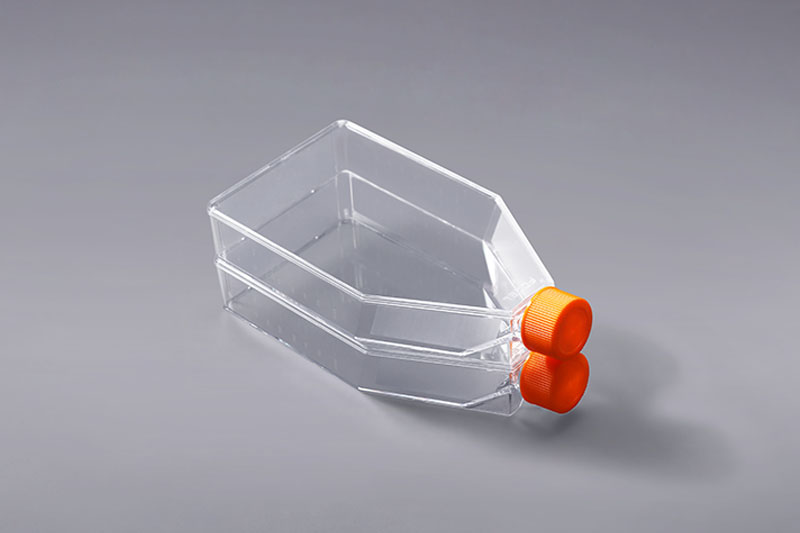The purpose of TC treatment on the surface of cell culture flasks
There are many types of cells. From the perspective of culture methods, they are mainly divided into two types: adherent cells and suspension cells. The cell culture flasks can be used for the culture of adherent cells and suspension cells. The difference is that when used for culturing adherent cells, the surface of consumables needs to be treated with surface TC.
Different from suspension cells, the growth of adherent cells must have a support surface that can be attached to, and cells can grow and reproduce on this surface by relying on attachment factors secreted by themselves or provided in the culture medium. In the past, cell culture consumables were mostly made of glass, which is hydrophilic, so the surface does not require special treatment. With the rapid development of science and technology, various polymer materials have gradually replaced glass materials and become good processing materials for cell culture consumables. In order to ensure that the adherent cells can be well attached to the surface of the consumables, the surface of the cell culture square flask needs to be specially modified to introduce hydrophilic factors on the surface to adapt to the growth and reproduction of the adherent cells.

TC full name: Tissue culture treated, TC treatment means that the surface of the vessel has been modified to be suitable for the cultivation of adherent cells. The cells that grow in suspension do not necessarily need such specially treated utensils. However, cell culture dishes after surface modification treatment are generally suitable for suspension cell culture.
TC surface treatment is an important process for cell culture flasks, cell factories and other adherent cell consumables. It has become the key to ensuring the normal growth and reproduction of cells and will play a more important role in the field of life sciences.
评论
发表评论